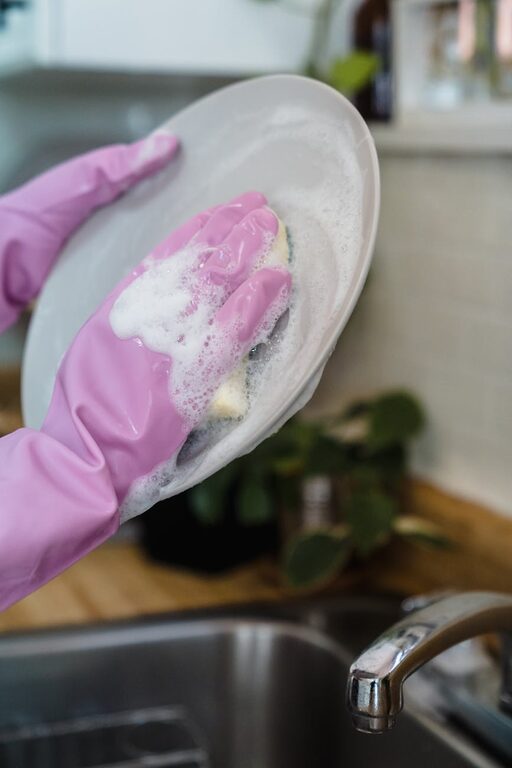After enjoying a delicious home-cooked dinner, the last thing most of us want is to spend a long time cleaning up. However, with some simple strategies and a little planning, dinner cleanup can become quicker and less stressful. Whether you’re cooking for yourself, a family, or friends, these ideas can help make tidying up easier and more efficient. Here are some practical tips to keep your kitchen mess under control and enjoy more of your evening.
Start with a Clean Kitchen
One of the best ways to make cleanup easier is to begin your cooking in a tidy kitchen. Start by washing any dishes left from earlier meals and clearing your countertops. This helps reduce clutter and gives you more space to prepare food, making the entire process smoother.
Benefits of a clean kitchen before cooking:
– Reduces cross-contamination
– Saves time by avoiding searching for tools or ingredients
– Keeps your mindset calm and focused
Use Fewer Pots and Utensils
Reducing the number of dishes and tools used during cooking can dramatically cut down on cleanup time. Plan meals that use similar utensils or combine cooking steps to minimize dirty pans.
Tips to reduce pots and utensils:
– Choose one-pot or sheet-pan recipes
– Use multifunctional kitchen tools
– Wash cutting boards and knives immediately after use
Clean as You Go
“Clean as you go” is a popular philosophy for a reason. Wiping down spills, rinsing dishes, and organizing ingredients while cooking prevents dirt and mess from piling up.
How to clean as you go effectively:
– Keep a damp cloth nearby for quick surface cleaning
– Soak pots or pans that you won’t use immediately
– Wash prep bowls, measuring cups, and utensils during downtimes
Utilize Soaking Time Wisely
After dinner, place pots, pans, and utensils that have stuck-on food into hot, soapy water to soak. Soaking loosens grime and reduces scrubbing effort later.
Additional soaking tips:
– Add a little baking soda or vinegar for tougher stains
– Let items soak while you eat or relax after your meal
– Avoid letting food dry on dishes by soaking promptly
Adopt a Dishwasher Routine
If you have a dishwasher, use it to maximize your cleanup efficiency. Rather than letting dirty dishes pile up in the sink, load them directly into the dishwasher throughout the meal preparation.
Dishwasher best practices:
– Rinse dishes quickly before loading to prevent clogs
– Run the dishwasher at night to have clean dishes ready in the morning
– Arrange dishes properly to maximize space and cleaning power
Use Disposable or Reusable Liners
Protect your baking sheets, trays, and pans by using parchment paper, silicone mats, or aluminum foil liners. This creates a barrier that prevents food from sticking and reduces the need for scrubbing.
Benefits of using liners:
– Saves time spent on washing sticky pans
– Extends the life of your cookware
– Can make portioning and serving easier
Organize Your Cleaning Supplies
Keeping cleaning products and tools handy can speed up cleanup. Store items such as dish soap, sponges, scrubbing brushes, and microfiber towels near your sink or prep area for quick access.
Cleaning supplies to keep nearby:
– Dish soap and hand soap
– Sponge or scrub brush
– Microfiber cloths or paper towels
– Countertop spray cleaner
Delegate Tasks When Possible
If you share your meals with family or roommates, encourage everyone to pitch in with cleanup. Assigning simple tasks like rinsing vegetables, clearing the table, or washing easy items lightens the load.
Ways to make delegation work:
– Create a rotating cleanup schedule
– Keep tasks age-appropriate and clear
– Praise efforts to create positive habits
Plan for Leftover Management
Handling leftovers efficiently means fewer containers and less clutter after dinner. Consider portioning leftovers into storage containers right after serving to simplify cleanup and save time later.
Leftover management ideas:
– Use stackable, easy-to-seal containers
– Label and date leftovers for easy tracking
– Freeze surplus portions to prevent waste
Final Wipe Down
Once the dishes are done, take a few minutes to wipe down the countertops, stove, and dining area. This leaves your kitchen feeling fresh and ready for the next meal.
Areas to focus on:
– Kitchen counters and sink
– Stove and range hood
– Dining table and chairs
– Floor spots or crumbs
—
Dinner cleanup doesn’t have to be a daunting chore. By adopting some or all of these ideas, you can reduce mess, save time, and make your kitchen routine more enjoyable. The key is to stay organized, clean little by little during cooking, and have the right tools at hand. Over time, these small changes add up, making cleanup a quick and easy part of your nightly routine. Happy cooking and cleaning!

